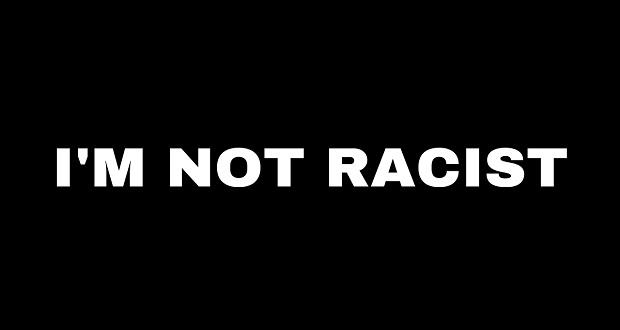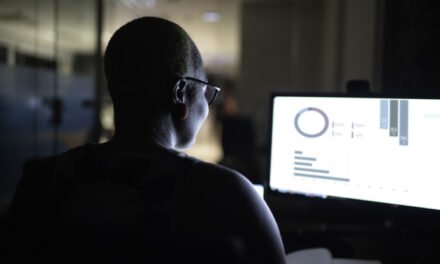
At the end of last year, we amended our evaluations process at The Winters Group in order to better capture participants’ reactions to our learning experiences. We were intentional in making our survey inclusive when asking demographic questions. For example, under gender, one can click all that apply: man, woman, transgender, non-binary, other. We don’t think this is or should be special – it should be the norm to offer this basic affirmation of gender non-binary and transgender identities. However, not everyone agrees.
The first time we used this new survey, we received a comment referring to our gender identification options. The participants suggested that we not use such “new-age language” because not everyone would be ready for it.
I immediately became defensive. Core to The Winters Group ethos is “meeting people where they are,” and yet we know that this does not preclude us from affirming marginalized identities. We are less concerned with keeping people from experiencing discomfort, particularly if that discomfort stems from privilege, than we are with supporting people in navigating their discomfort.
We are less concerned with keeping people from experiencing discomfort, particularly if that discomfort stems from privilege, than we are with supporting people in navigating their discomfort. Click To TweetI wanted to have a conversation with this participant about how merely seeing options on a survey that apparently don’t apply to them should not cause them, or anyone, such distress–and if it does, they should check in with themselves about that. In other words, why in the world do you care??
But then I had to check in with myself. See, I tend to do this thing where I express self-righteousness when I’m experiencing insecurity over my own process, privilege, or lack of understanding around a certain subject. For example, when I first heard and began to understand the language and impact of “white privilege,” I was enthusiastically ranting with my other “woke” white friends about how people need to address their white privilege while simultaneously wrestling with my own identity and biases. It’s not a bad impulse to want people to care about something that is important, but it’s also not particularly helpful to demand that they care, or self-righteously blame them for what they don’t know.
It’s not a bad impulse to want people to care about something that is important, but it’s also not particularly helpful to demand that they care, or self-righteously blame them for what they don’t know. Click To TweetSo, I recognized this impulse and paused – why am I mad at this person for what they don’t know, or for their discomfort, when just four years ago I was working through my own discomfort around issues of gender, and still now have much to learn? I realized that being faced with this person’s fragility around gender reminded me too much of my own.
I remember an exact conversation with my friend in college—both of us social-justice minded, liberal students involved in on-campus racial justice efforts—about her younger sister’s diverse friend group, and how we didn’t understand generation Z’s need to have so many labels or “options” for gender and sexuality. And why did so many of our friends (only two people, for the record) “suddenly” decide to use gender neutral pronouns? We understood the concept of transgender, but what was this “phenomenon” surrounding the “in between”?
Never mind the fact that, according to Pew Research Center, a large fraction of millennials—perhaps as many as 12 percent—identify as transgender or gender non-conforming. And never mind the fact that, because we attended a university whose main student population was coming from either conservative Catholic environments or conservative Midwest communities, students who were coming out as non-binary probably hadn’t felt comfortable before then. We were equating the evolution of someone’s understanding of themselves as fitting somewhere beyond the gender binary to a choice. Our lack of education and experience manifested in a lack of empathy, and our subsequent discomfort made us what I will call “cis-fragile.”
I now see two lessons to come out of my own fragility: (1) Intersectionality is essential to inclusion and justice, and (2) curiosity is the catalyst for growth.
I now see two lessons to come out of my own fragility: (1) Intersectionality is essential to inclusion and justice, and (2) curiosity is the catalyst for growth. Click To TweetAt the time that I was experiencing and projecting this fragility around gender, I considered myself an ally in anti-racism work. I was becoming well-versed in whiteness, white fragility, and the language of activism; however, I now know that you cannot fight with and for a group of people if you do not know them. And in my “unknowing” state around gender, I was leaving gender non-binary people of color out of the equation. I was not considering the particular challenges this group of people faces, challenges whose solutions are inextricably linked to the solutions for racial equity more broadly.
You cannot fight with and for a group of people if you do not know them. Click To TweetAnd, in general, I was operating from a place of judgment rather than curiosity. It wasn’t until I made that shift that growth became possible. The impact of “cis-fragility” is not just this somewhat innocuous pondering about how or why people identify as non-binary; rather, it’s that this questioning is rooted in judgment, and in defense of my own norms and experiences. And that judgment and defensiveness, as with white fragility, can perpetuate marginalization by communicating that another’s ability to be fully themselves in a space is dependent on whether I am “ready” to accept it – that I have a say in how someone lives their truth. That’s power – a power that can seduce us into staying silent in the face of persistent discrimination:
- The federal EEO-1 form still requires that organizations sort employees into one of two binary genders. Meaning, if employees identify as non-binary, employers must use a “visual observation” and report a gender for that person in good faith.
- Only 33% of non-binary/gender non-conforming individuals reported being out at work.
- Almost half (45%) of non-binary individuals had experienced negative incidents at work on a monthly, or even more frequent basis.
I am grateful that there were people in my life who took that power from me, who showed me who they were unapologetically, compelling me to ask questions that conveyed curiosity and empathy rather than judgment. Whose stories revealed to me that my inability to decenter myself caused harm.
A lot of growth can happen in four years—thank goodness for that. I’ve had many experiences and relationships that pointed the mirror back on me and my fragility, on how I was so centered on my confusion and discomfort that I was ignoring the discomfort of my peers who just wanted to be recognized as fully themselves. As is true of the person who answered our survey, it absolutely does not impact me how someone chooses to identify themselves on the gender spectrum, and I have no right to say that my experience of gender and the gender binary should dictate others’ experiences.
I know these things now, but I still have much to learn. I had much to learn in writing this post. And what I am continuing to learn on my inclusion journey, on my journey to face my own fragility, is that it is the particular details of people’s experiences that we must pay attention to in order to foster equity and inclusion. Painting with broad brushes can be helpful for pattern recognition, but often, we can only see the gaps, where inequity roots itself, in the particular.
The experience of being transgender is different from the experience of being non-binary, which is different from the experience of someone who is transitioning, which is different from the experience of someone who is cisgender. Workplaces (and governments) who make space for these distinctions make space for all kinds of nuance and connection, and ultimately, shared meaning and common ground. Our fragility is silencing, and as Travis Jones argued a few weeks ago, can be violent. It’s time to move through our judgments and fears and beyond the binary – we will all be better for it.



















Thanks for describing a phrase I was just now using for the first time. I found it by searching for “Trans Fragility.” I knew someone must have already used it. Keep up the good fight.